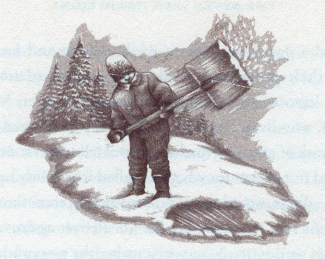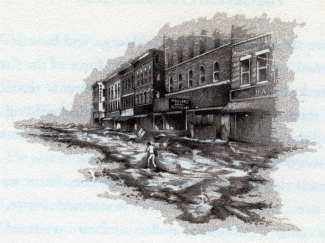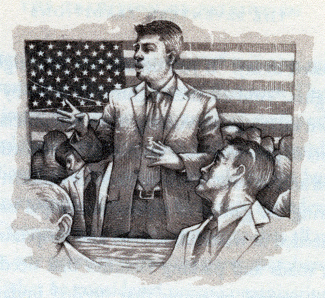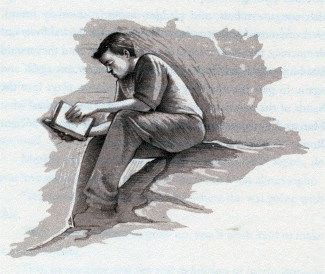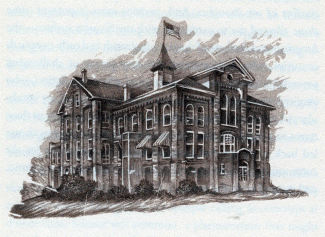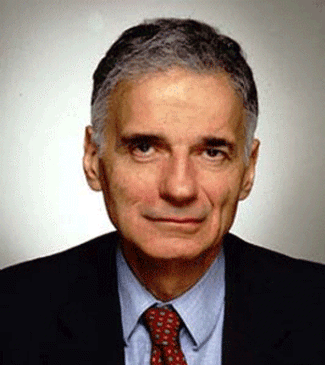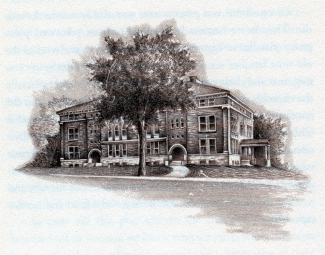
Every major religion, and many minor ones, level charitable injunctions on their followers. For centuries, the concepts of tithing and good works have been central to Christianity. Beyond charitable giving, the scriptures are filled with homilies, exemplary narratives, and other stories enshrine the duty to act generously and compassionately toward one's fellow human beings. Though we did attend Sunday School at the local Methodist church, our real education in the meaning of charity came from the largely secular tradition of our parents and grandparents -- one that dated back at least as far as my maternal grandmother, a leading doer of good works in Zahle, whose prompting had led to the construction of a hospital in the town.
This tradition crossed the ocean and took two distinct pathways. One can be called "point of need" charity, in the form of things like the free food and hot coffee my father gave readily to the poor when they came to the restaurant. Especially during the Great Depression, hungry people would go door-to-door begging for food. When they knocked on our door, Mother happily directed them to our restaurant, with the assurance that a hot meal would await them. The expression of gratitude on their faces made a deep impression on our conscience.
Father considered it his responsibility as a businessman to extend such help to those in need, which is why we children always treasured the following exchange he had in the late 1940s with a local doctor, a friend he bantered with often at the lunch counter:
DOCTOR. Why are the auto workers' wages so high?
FATHER. So they can afford to pay your bills! Why do you charge so much?
DOCTOR. Because we often treat poor people free.
FATHER (Smiling) Well, in that case, since we give free coffee to poor people, your coffee [then 10 cents] today is $1.00. Thank you.
Dad did not think of his charitable activities as something to be pawned off onto the backs of his other customers.
Another example of his charitable impulse occurred during World War II. His office tenant above the restaurant, Dr. Henry Garbus, a dentist, was called to military service. Dad held his office free of charge, pending his return, and refused to rent it to someone else -- even in what was then a high-demand market. He told Dr. Garbus that when he came back to his family after the war, he would find his dental office just as he left it. All he would have to ask for were the keys before restarting his practice. Nearly three years later, that is what Dr. Garbus did. When it came to the war effort, Dad believed he had to do his part again and again on the home front for those who were in the armed forces.
The second path had to do with systemic charity -- in the form of building or expanding facilities and institutions that benefited the community. For example, in the mid-1950s, although the restaurant business was not doing all that well, my parents gave what was for them a major donation to a charitable fund being raised to build a large new wing to the local hospital. Mother took a special interest in the project, joining other Winsted donors to go and watch the new construction. She also talked up the fund-raising drive in the community, going door to door, as she did often for the Red Cross. Later I heard her comment in passing that "we built the hospital," and there was quiet pride in her voice. "You should care" was a mantra in our household, a conviction that found expression in myriad ways. Once, when an elderly neighbor fell on the ice and broke her arm, Mother sent my sister Laura, who was about eleven years old, to help her dress. She cried and didn't want to go but she went anyway. Sometimes you have to do things in life whether you want to or not.
Even with their obligations at home, my parents still found a way to extend their charitable giving back to their homeland. When my father's home village in Lebanon needed a new sewer system built, he sent his own money for the project, and collected donations from other Lebanese immigrants in the area. He followed up that project by helping to persuade Winsted town officials to build a modern sewage treatment system that would help the town kick the habit of dumping the sewage in the Mad River, which ran through the center of town!
One bright summer afternoon, Dad took me for a ride around town. I suspected there was a purpose to this trip beyond catching the breezes by the lake or watching the teenagers playing sandlot baseball near the high school, and I was right.
First, we drove past the Beardsley and Memorial Library. Ellen Rockwell Beardsley had started this institution in 1901, he told me, with a donation of ten thousand dollars -- a princely sum at that time. He then drove up Spencer Street until we got to the Litchfield County Hospital -- the first such institution in the county in 1902, when it was built, and also a product of private charity. Down a few more roads to the other end of town, and we were at the Gilbert School, a high school that for years was regarded as among the best in the nation. The Gilbert School was launched by a local industrialist, William Gilbert, who built the world-renowned Gilbert Clock Company in Winsted. His original gift established Gilbert as a private secondary school, the Gilbert School, but it gradually became more public over the years as more tax dollars were used to supplement a declining endowment.
Turning left, my father drove up a hill to Highland Lake. Nearby there was a small inviting park with some seats and tables for having outdoor lunches -- a park established by another local philanthropist. Then we made a 180-degree turn and drove down toward the long Main Street -- passing the Winchester Historical Society, founded and nurtured with charitable contributions. He drove past some other charities, including the imposing Gilbert Home for orphans and other needy children, and arrived at the beautiful Soldiers' Monument, so central to my childhood imagination. The town had paid a dear price in casualties during the Civil War, and after the war ended a volunteer veteran and local philanthropist promoted the idea of such a memorial; it was finally dedicated in 1890. With several donated acres of hilltop land, the structure and its grounds soon became a haven for the townspeople, who still conduct summer theater there, and whose children frolic on its grounds or run around the perimeter.
When we'd finished our tour of the area, my father pulled up to our house and turned the ignition off. "See all those fine establishments in out little town?" he said to me. "Think about how important they are to our community. Then ask yourself this question: Since 1900, there were and are at least a hundred townspeople as wealthy as those philanthropists were. What kind of town would this be if those people put some of their wealth back into the community the same way?" We sat there together in silence, a light wind breezing through the open windows. While I've since traveled many miles to many places, I've never forgotten the lesson I learned on that one trip.
On another, much later trip, I remember hearing a speaker quote Jean Monnet, a post-World War II advocate for the European Union. "Without people, nothing is possible," Monnet had said. "Without institutions, nothing is lasting."
Today, even though community-building philanthropy is tax-deductible, there are relatively fewer large-scale donations to create new institutions such as libraries, performance halls, museums, health care centers, and recreational facilities. Reliance on the government as the first source of funding for these kinds of projects, it seems to me, weakens the expectation that wealthy people will extend the legacies of their enlightened forebears, which so enriched people's lives. Our communities are diminished as a result.

